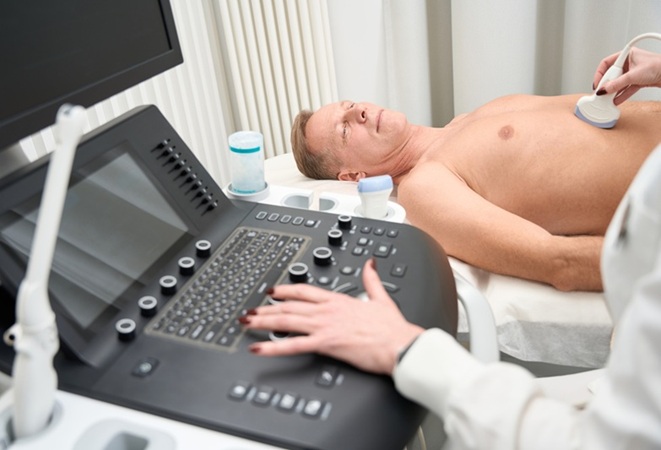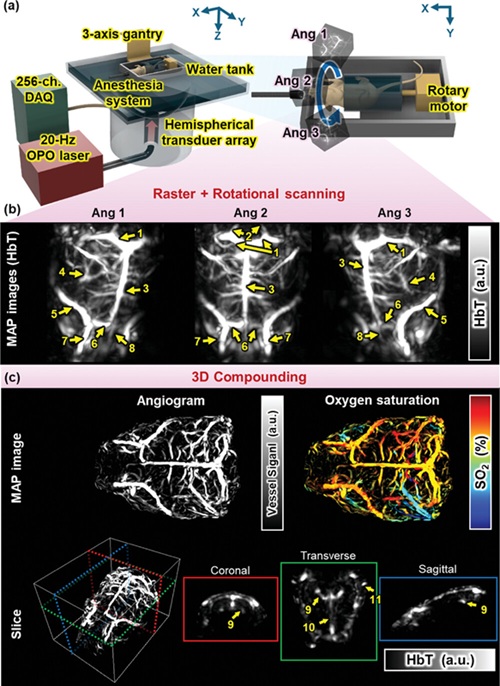New Imaging Agent to Drive Step-Change for Brain Cancer Imaging
|
By MedImaging International staff writers Posted on 07 Nov 2024 |

Gliomas are highly diffusely infiltrative tumors that impact the surrounding brain tissue. They represent the most prevalent type of central nervous system (CNS) neoplasm originating from glial cells, accounting for around 30% of all brain and CNS tumors and approximately 80% of malignant brain tumors. There is a significant unmet need to enhance the diagnosis and management of gliomas, particularly after treatment. Traditional MRI imaging techniques have various limitations, such as a lack of biological specificity, reliance on the disruption of the blood-brain barrier, and an intrinsic inability to distinguish between tumor progression and treatment-related changes. These issues can lead to inconclusive results, delaying critical treatment decisions. With low survival rates and the necessity for prompt actions, precision imaging becomes essential. Now, a new PET imaging agent for gliomas has the potential to meet this need, providing patients with clearer diagnoses and aiding treatment decision-making.
Telix Pharmaceuticals (Melbourne, Australia) has developed Pixclara (18F-floretyrosine or 18F-FET), a PET agent designed to differentiate between progressive or recurrent gliomas and treatment-related changes in both adult and pediatric patients. The U.S. Food and Drug Administration (FDA) has accepted the New Drug Application (NDA) for TLX101-CDx (Pixclara), an imaging agent for gliomas. This application has been given priority review status, with a Prescription Drug User Fee Act (PDUFA) goal date set for April 26, 2025, facilitating a potential U.S. commercial launch in 2025.
While FET PET is already part of international clinical practice guidelines for glioma imaging, there is currently no FDA-approved targeted amino acid PET agent available for adult and pediatric brain cancer imaging in the U.S. Given its potential to fulfill a significant medical need, Pixclara has been designated as an orphan drug and granted fast track designation by the FDA. Telix is also exploring the possibility of using Pixclara as a companion diagnostic agent for TLX101-Tx, an investigational neuro-oncology drug in development that targets the same amino acid transporter mechanism with therapeutic radiation.
“Telix believes that the FDA approval of Pixclara will drive a step-change for brain cancer imaging in the U.S., and bring it into line with a more advanced standard of care currently used in other markets,” said Kevin Richardson, Chief Executive Officer, Telix Precision Medicine. “There is currently a critical need for better imaging in brain cancer, and Telix is dedicated to delivering precision medicine solutions that address patient needs and enhance both cancer imaging and treatment outcomes.”
Related Links:
Telix Pharmaceuticals
Latest Nuclear Medicine News
- Novel PET Imaging Approach Offers Never-Before-Seen View of Neuroinflammation
- Novel Radiotracer Identifies Biomarker for Triple-Negative Breast Cancer
- Innovative PET Imaging Technique to Help Diagnose Neurodegeneration
- New Molecular Imaging Test to Improve Lung Cancer Diagnosis
- Novel PET Technique Visualizes Spinal Cord Injuries to Predict Recovery
- Next-Gen Tau Radiotracers Outperform FDA-Approved Imaging Agents in Detecting Alzheimer’s
- Breakthrough Method Detects Inflammation in Body Using PET Imaging
- Advanced Imaging Reveals Hidden Metastases in High-Risk Prostate Cancer Patients
- Combining Advanced Imaging Technologies Offers Breakthrough in Glioblastoma Treatment
- New Molecular Imaging Agent Accurately Identifies Crucial Cancer Biomarker
- New Scans Light Up Aggressive Tumors for Better Treatment
- AI Stroke Brain Scan Readings Twice as Accurate as Current Method
- AI Analysis of PET/CT Images Predicts Side Effects of Immunotherapy in Lung Cancer
- Portable PET Scanner to Detect Earliest Stages of Alzheimer’s Disease
- New Immuno-PET Imaging Technique Identifies Glioblastoma Patients Who Would Benefit from Immunotherapy
- PET Software Enhances Diagnosis and Monitoring of Alzheimer's Disease
Channels
Radiography
view channel
AI-Powered Imaging Technique Shows Promise in Evaluating Patients for PCI
Percutaneous coronary intervention (PCI), also known as coronary angioplasty, is a minimally invasive procedure where small metal tubes called stents are inserted into partially blocked coronary arteries... Read more
Higher Chest X-Ray Usage Catches Lung Cancer Earlier and Improves Survival
Lung cancer continues to be the leading cause of cancer-related deaths worldwide. While advanced technologies like CT scanners play a crucial role in detecting lung cancer, more accessible and affordable... Read moreMRI
view channel
Ultra-Powerful MRI Scans Enable Life-Changing Surgery in Treatment-Resistant Epileptic Patients
Approximately 360,000 individuals in the UK suffer from focal epilepsy, a condition in which seizures spread from one part of the brain. Around a third of these patients experience persistent seizures... Read more
AI-Powered MRI Technology Improves Parkinson’s Diagnoses
Current research shows that the accuracy of diagnosing Parkinson’s disease typically ranges from 55% to 78% within the first five years of assessment. This is partly due to the similarities shared by Parkinson’s... Read more
Biparametric MRI Combined with AI Enhances Detection of Clinically Significant Prostate Cancer
Artificial intelligence (AI) technologies are transforming the way medical images are analyzed, offering unprecedented capabilities in quantitatively extracting features that go beyond traditional visual... Read more
First-Of-Its-Kind AI-Driven Brain Imaging Platform to Better Guide Stroke Treatment Options
Each year, approximately 800,000 people in the U.S. experience strokes, with marginalized and minoritized groups being disproportionately affected. Strokes vary in terms of size and location within the... Read moreUltrasound
view channel
Tiny Magnetic Robot Takes 3D Scans from Deep Within Body
Colorectal cancer ranks as one of the leading causes of cancer-related mortality worldwide. However, when detected early, it is highly treatable. Now, a new minimally invasive technique could significantly... Read more
High Resolution Ultrasound Speeds Up Prostate Cancer Diagnosis
Each year, approximately one million prostate cancer biopsies are conducted across Europe, with similar numbers in the USA and around 100,000 in Canada. Most of these biopsies are performed using MRI images... Read more
World's First Wireless, Handheld, Whole-Body Ultrasound with Single PZT Transducer Makes Imaging More Accessible
Ultrasound devices play a vital role in the medical field, routinely used to examine the body's internal tissues and structures. While advancements have steadily improved ultrasound image quality and processing... Read moreGeneral/Advanced Imaging
view channel
AI Model Significantly Enhances Low-Dose CT Capabilities
Lung cancer remains one of the most challenging diseases, making early diagnosis vital for effective treatment. Fortunately, advancements in artificial intelligence (AI) are revolutionizing lung cancer... Read more
Ultra-Low Dose CT Aids Pneumonia Diagnosis in Immunocompromised Patients
Lung infections can be life-threatening for patients with weakened immune systems, making timely diagnosis crucial. While CT scans are considered the gold standard for detecting pneumonia, repeated scans... Read moreImaging IT
view channel
New Google Cloud Medical Imaging Suite Makes Imaging Healthcare Data More Accessible
Medical imaging is a critical tool used to diagnose patients, and there are billions of medical images scanned globally each year. Imaging data accounts for about 90% of all healthcare data1 and, until... Read more
Global AI in Medical Diagnostics Market to Be Driven by Demand for Image Recognition in Radiology
The global artificial intelligence (AI) in medical diagnostics market is expanding with early disease detection being one of its key applications and image recognition becoming a compelling consumer proposition... Read moreIndustry News
view channel
GE HealthCare and NVIDIA Collaboration to Reimagine Diagnostic Imaging
GE HealthCare (Chicago, IL, USA) has entered into a collaboration with NVIDIA (Santa Clara, CA, USA), expanding the existing relationship between the two companies to focus on pioneering innovation in... Read more
Patient-Specific 3D-Printed Phantoms Transform CT Imaging
New research has highlighted how anatomically precise, patient-specific 3D-printed phantoms are proving to be scalable, cost-effective, and efficient tools in the development of new CT scan algorithms... Read more
Siemens and Sectra Collaborate on Enhancing Radiology Workflows
Siemens Healthineers (Forchheim, Germany) and Sectra (Linköping, Sweden) have entered into a collaboration aimed at enhancing radiologists' diagnostic capabilities and, in turn, improving patient care... Read more


















